- Home
- Anne Stuart
Barrett's Hill Page 17
Barrett's Hill Read online
Page 17
“Can’t right now, Missy,” he shouted back, his face red from exertion and heat. “Don’t you worry—Adam can’t catch up with him. We’ll catch that fiend when he tries to leave town.”
“He’ll kill Adam!” I screamed. I knew perfectly well that if Adam wanted to catch up with Fathimore he would. But Constable Putnam just shook his head and grinned, his eyes taking in the rumpled and telltale condition of my clothing.
I swore at him then, not caring what he thought of me, and raced down the stairs after Adam, stopping long enough to grab Karlew’s hunting rifle from the library gun closet.
The blowing rain was like a winding sheet as I scratched and crawled my way up the hill. The path was solid mud about four inches deep, and as I climbed I could see the marks where Fathimore had fallen. I looked back for an instant at the house, but the smoke no longer poured so heavily out of the roof, and my mind somehow registered that they must have got the fire under control. At least Elinor wouldn’t be burned in her bed.
I slipped only once, but that was sufficient. I was covered with mud, making my wet skirts even heavier and harder to negotiate. It just about sapped any energy I had left, and yet still I climbed, thinking that I’d never reach them in time.
And suddenly, before I realized it, I was upon them. Adam was tall and black against the rain, an avenging angel, bleak and terrifying, and I finally saw the proof of the darkness that lurked inside him, the darkness that frightened me. I could only hope I would never see that expression again. At his feet lay Fathimore, his skinny neck at an odd angle, lying dead in the spring mud.
Chapter 19
I STOOD SILENTLY in the rain, staring at the two of them. Adam must have felt my eyes on him for he looked up at that moment, and the expression in his eyes was unexpected, almost desolate. He came slowly toward me. Already we could hear the sounds of the search party struggling up the hill after us. I dropped the rifle in the mud.
“I broke his neck with my bare hands while he was begging me,” he said, searching my face. He stared at me in silence, something bleak and lost in his green eyes. “Should I be proud of that?”
I shook my head, somehow knowing that was the answer he needed. Even if I secretly applauded the action, it wasn’t what he needed to hear. With what in any other man I might have called a sob, he pulled me into his arms and held me so tightly I could scarcely breathe, and once more I didn’t care. I didn’t feel the icy rain or the wind sweeping around us. I didn’t see the wretched remains of Fathimore Wilby at our feet. All that existed was Adam’s arms around me as he shook. And that was the way Constable Putnam and his minions found us.
I don’t remember how we got down the hill. I remember the constable snapping handcuffs on Adam (“Just a formality, Mr. Traywick”). I suppose it was Karlew who helped me down the muddy path into Nanny’s waiting arms. I remember him snarling about the condition of his gun, but apart from that nothing made much impression beyond Adam’s tall, retreating figure. I could hear him laughing with the constable, and I remember the vague annoyance I felt that he was able to laugh when I wanted to die. I let Nanny take me back up to my room. The smell of wet, charred wood hung heavy through the house, and I remembered what Fathimore had interrupted in the attic.
“Now, Miss Miranda,” Nanny said as she cosseted me. “You get out of those wet clothes and get into bed. Some hot tea and then a good long sleep is just what you need right now. In a couple of days you’ll feel right as rain.”
I let her undress me, not paying much attention to anything. I refused to get into my nightclothes though. Instead I put on a warm wool dress and seated myself on the window seat, staring out at the fog-shrouded hill in dry-eyed acceptance. It was somehow fitting that it had ended where it began.
“Miss Miranda, you should be in bed,” Cook scolded when she brought me my tea. “You need a good long rest.”
“She won’t, Dorothy,” Nanny grumbled. “She just sits there and stares out the window and won’t say a decent word to anyone.” Her indignation was in full swing.
“There’s nothing to say,” I told her numbly, staring into the rain. Had they brought Fathimore’s body down yet? And where was Adam?
“Miss Miranda, he’ll be back soon, you know,” Cook said, reading my mind, which was no difficult task. “They’ve just got to have one of them inquest things, and then he’ll come right back here. You just wait and see.”
“Oh, Cook, do you really think so?” I started crying again, and for once I couldn’t be bothered to hide it or stop it. I hurt, inside and out. It was over, and there was no reason for Adam Traywick to stay. And all my senses told me he wouldn’t.
“Why, Miss, how could you doubt it?” She sounded honestly amazed, and I wanted so much to believe her.
“Now you listen to your Nanny,” that noble personage said. “I don’t know what bee you’ve got in your bonnet, but Cook’s absolutely right. We don’t want you all dragged out and tear-stained for Mr. Adam when he comes back for you, now do we?”
I smiled through my tears. “I guess not.”
“That’s my girl,” Nanny approved. “Now you drink up your tea and then take a long, long rest. I’ll even get you some of your cousin’s laudanum, much as I disapprove of the nasty stuff.”
I laughed shakily. “That’s very noble of you, Nanny, but I won’t need it. I could sleep for days.”
“And that’s the best thing for you, my girl!” Cook said heartily. “And before you know it Mr. Adam’ll be back safe and sound.” She kissed me wetly on the forehead and started out the door. “Come along, Ethel.”
“In a minute,” Nanny replied, and waited till we were alone. “Now don’t you let Miss Maxine bother you none tonight. There’ll be time enough in the next few days while we’re waiting.” She tucked the striped wool afghan my grandmother had crocheted for me around my feet. “Imagine Mr. Fathimore doing all those terrible things!” That was just what I didn’t want to do—imagine him committing those bloody crimes. I shuddered, remembering his wasted, withered face with its avid eyes. I smiled bravely at Nanny. Yes, what I needed most was sleep. With rest I could better accept the fact that I’d never see Adam again.
BUT IT WASN’T any easier after a few days. Maxine would smirk knowingly every chance she got, and Nanny’s and Cook’s optimistic little jokes were even harder to take. I couldn’t blame them. Romance dies hard, especially for elderly spinsters and twenty-year-old misfits. And I suppose they really believed he’d come back.
I saw Elinor once during this time. For the most part she stayed in her room, doping herself into sweet oblivion with laudanum and Madeira. She’d taken the news that she hadn’t actually killed Carly fairly well, I thought. Unfortunately, her whole life had been based on that supposition, and she was having a difficult time adjusting to her relatively guilt-free status.
Karlew spent most of his days in Montpelier, attempting to straighten things out but generally confusing matters, which I suspect was deliberate on his part. He told me a few days after Fathimore . . . died, that Adam had been released pending the inquiry. He preferred to stay at a hotel in Montpelier until it was over. I couldn’t ask Karlew whether he thought Adam would come back, and he didn’t volunteer his opinion. As usual, most of his concern was for himself and whether he could be prosecuted for withholding information about the original crime. I believe the authorities wanted to make him sweat for a bit.
And so April passed. The snow got lower and dirtier, the birds were slowly returning, and the shock seemed to be wearing off almost everyone. Everyone except me. I allowed myself to mope around a bit—then, seeing the obvious satisfaction it gave Maxine, I immediately became very bright and cheerful. I began to make feverish plans for my removal from the immediate vicinity.
“Nanny,” I said one day in late April when the snow was almost gone, “I was thinking of going to Boston.”
&nb
sp; “Land sakes, child, whatever for?” To Nanny, Boston was a den of iniquity comparable only to Sodom and Gomorrah.
“I thought I might visit Aunt Lauren. I haven’t seen her since my father died, and I thought I might cheer her up.” Aunt Lauren was a garrulous old lady without a depressive thought in her curly white head. I counted on her to do the cheering.
“But what about Mr. Adam?”
“Nanny,” I took a deep, painful breath, “I hate to have to be the one to tell you this, but Adam is not coming back.” My voice was marvelously unconcerned.
“Well, I never . . . !” Nanny said in amazement. Then she began to chuckle. “Well, Missy, you make all the plans you want to. If that’s the way you want to keep busy then it’s up to you. But I bet you’re a mother this time next year.”
“That could be,” I snapped, “but I won’t be married.” I stomped from the room before Nanny could reprimand me for such indelicate talk. I wanted to be away from everyone. My misery was complete, and for once I had no desire to wallow in it. I only wished the pain would go away.
And then suddenly all the last traces of muddy, beaten-down snow were gone from the top of Barrett’s Hill. I woke early one morning at the beginning of May, and I can still remember the sense of finality I felt when I saw the wet brown earth where the snow had last rested. The snow was gone, and it was time for me to go as well.
I climbed out of bed and slowly went to the casement window, in no particular hurry to start the day. I opened the window, and the soft spring air wrapped itself around me. I was staring morosely at the blue sky when there was a hurried rapping on my door.
“Come in,” I called, expecting Nanny or Emma with my morning tea.
“Good morning, dear.”
I whirled around to face Cousin Elinor. It was the first time I’d seen her in broad daylight since her sad and useless confession, and the last month had definitely taken its toll of her already faded beauty. She now looked at least ten years older than when I had last seen her clearly. And yet, there was almost a look of peace around her sunken eyes. Of course, she might have been at the Madeira again, but I preferred to think the best.
“Cousin Elinor, you’re up!” I ran to her and took her thin hands in mine. “You look very well,” I lied.
“Thank you, my dear,” she murmured, paying scant attention to the compliment. “But you’ve lost weight, haven’t you? Are you all right?”
“Perfectly,” I lied again. I was becoming quite adept at prevarication. “I just haven’t been feeling terribly hungry recently.”
“I don’t blame you.” She shuddered genteelly, and her thin shoulders beneath the pale gray wrapper shook. “I decided it was time to stop pampering myself.” She changed the subject abruptly. “After all, there are things to be done, lives to be lived.”
“Yes, that’s true.” I agreed, unenthusiastically, I’m afraid.
Elinor nodded, and we stood there in an uncomfortable silence. “Oh, that reminds me.” she said vaguely, staring blankly out the window. “Karlew said he’d like to see you as soon as possible. He’s in his study.”
“What about?” I could manage to summon a small amount of curiosity. Karlew had been doing his best to stay out of my way since the inquest (an inconclusive waste of time), and I had abetted him to the best of my ability. This time, however, I was glad of an enforced meeting. I had to tell him I was leaving.
“I don’t know, dear. You’ll have to ask him yourself.”
She floated out the door, and I felt slightly cheered. At least Elinor was feeling better. Any punishment she deserved for having tried to murder someone, she’d more than paid for in having to live with her so charming family. And she’d continue to pay, I thought morosely. I toyed with the idea of inviting her to come along with me, but I knew she’d refuse. Women seem to have a habit of accepting whatever trap their menfolk put them in. But not me. I was leaving.
I pulled on a simple blue cotton dress, one of my favorites, in hopes that it might give me courage. This time I knew that Karlew couldn’t stop me, yet I still felt uneasy. I brushed my hair haphazardly and hurried downstairs before my courage failed me.
His door was open. I could see him at his desk, trying desperately to look as if he belonged in such an intellectual setting. I went straight in.
“Ah, Miranda,” he looked up benevolently. “Sit down, my dear child.”
Oh, hell, I thought, he’s in one of his Father Confessor moods. At that moment I felt Karlew’s clerical affectations to be a little more than I could take.
“Karlew, I’m leaving,” I announced. I had never called him by his given name before, but I no longer felt willing to dignify him with a title. “I’m sorry, but you can’t stop me.” I was fast working myself into a righteous anger. “I’ve been through enough recently.” Self-pity, a thing I heartily detest, was gaining control of me.
“I have no intention of stopping you,” he said mildly over his glasses. “I merely wanted to give you my blessing.”
“You—you don’t mind?” I had expected Karlew to take the loss of my fortune a bit more seriously than this. Perhaps he’d learned something from the recent tragedies.
“Certainly not, dear. I shall miss you, of course. You have been like a dear and beloved daughter to Elinor and myself—a great strength in our hour of need, and a wise but perhaps not always dutiful addition to our cherished family.”
I decided that I would let him get away with this rubbish. At least I wouldn’t have to listen to it again.
“And you must promise to come back and visit your dear friends and relatives whenever you get the chance. Though being so far away I don’t know whether that will be likely.”
Far away, I thought? I’ll only be in Boston. But Karlew was droning inexorably on.
“Of course, Maxine will be quite inconsolable for a while with the loss of her beloved sister of the heart, but youth is so resilient.” He sighed loudly, obviously remembering his own lost youth and the incredible amount of trouble and tragedy it had precipitated.
I said nothing to this. Karlew cleared his throat and looked at me warily for a moment. “Perhaps I owe you an explanation for my somewhat circumspect behavior the last few months.”
“Perhaps,” I said noncommittally. I wasn’t in the mood to listen to Karlew unburden his soul; I had no desire to play father confessor. Such occasions were always embarrassing to me, when people felt like wallowing in their guilt and failures with emotional abandon with me as an unwilling witness. I should have known that Karlew was not one to truly admit guilt for anything.
“You must realize we’d been under a lot of strain, what with Adam suddenly appearing like an avenging angel, upsetting our carefully built-up security.”
He clearly expected my sympathy, sympathy I wasn’t ready to give.
“I can imagine you were,” I said coolly. I wasn’t too displeased at the thought of Karlew’s discomfort.
He stared at me solemnly, his rosy face suitably drawn. “You see, I thought Elinor had murdered Carly in a jealous rage. Why, she thought so herself. It was my duty to protect her from Adam’s retribution. Though why he needed revenge, I can’t imagine. He wasn’t the one who was in love with her.” He tried to look brokenhearted, but his main expression was one of pique at being cheated out of the starring role. I’m sure he felt he should have been the avenger, not Adam. But circumstances had precluded that. He could hardly have turned his own wife in.
“Perhaps I used you rather unjustly,” he was saying to me. “But Adam seemed almost more interested in you than in finding Carly’s murderer, so I thought . . .”
“You thought you could buy his silence with me?” I questioned, although I knew the answer already. I wanted to see him squirm. “Very Christian of you, Cousin.”
He did squirm, and his rosy cheeks reddened furt
her. “Oh, well, it was all for the best, wasn’t it?”
“Was it?” I felt a sharp pain in my stomach at the thought of Adam.
“Of course,” Karlew said heartily. “I suppose you heard that Fathimore set the hotel on fire? He was trying to get rid of Miss Shenille and Adam at the same time, but he never was a very effective rector.” I didn’t give in to the temptation to point out arson and murder weren’t the usual duties of a minister’s assistant. I couldn’t understand this sudden desire to go over the details of the matter after a month of silence, and I wasn’t going to encourage him.
“I had supposed that was what happened,” I said. A question had been plaguing me, and I decided to delight my worthy cousin by asking his opinion. “The one thing I don’t understand is why he wanted to kill me? I suppose he was trying to silence Adam when he burned the hotel; and he killed Roxie because she was in league with Adam . . .”
“He killed Roxie because she . . . tempted him,” he said politely. “And most of all he hated you because you were his biggest threat. He had an idea that women were evil, and anyone he wanted he had to destroy. Of course, you’re much too young to understand the way some men’s minds work.”
I had understood very well the way Fathimore’s mind had worked, but I didn’t disabuse Karlew of his notion. I could still feel nausea at the thought of Fathimore wanting me. “And you knew how sick he was all this time and you never said a word?” I accused him.
He shrugged his shoulders. “How was I to know it would manifest itself so dangerously?” he excused himself. He would always find justification for his acts of moral cowardice.
I ignored him as he droned on. I was tired of him, mortally tired of his petty mind and soul. I was searching for some way to bring this tedious interview to a close when something he was saying caught my full attention.
“What was that?” I asked sharply, dread and hope warring within me.
“I said, Miranda,” he continued after staring at me for a long moment, “I’m quite surprised that you’d already seen him this morning. I had rather hoped to be the one to tell you.”

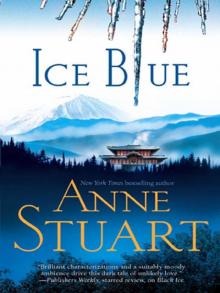 Ice Blue
Ice Blue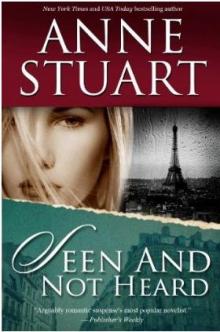 Seen and Not Heard
Seen and Not Heard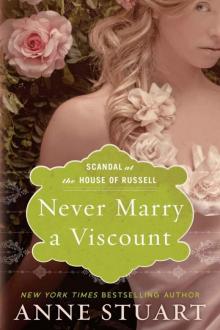 Never Marry a Viscount
Never Marry a Viscount Heartless
Heartless The Devil's Waltz
The Devil's Waltz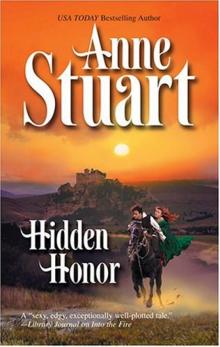 Hidden Honor
Hidden Honor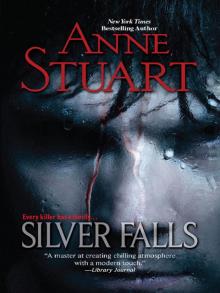 Silver Falls
Silver Falls Fire and Ice
Fire and Ice Nightfall
Nightfall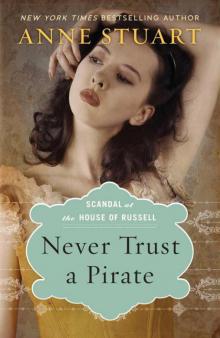 Never Trust a Pirate
Never Trust a Pirate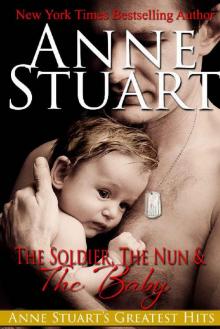 The Soldier and the Baby
The Soldier and the Baby Still Lake
Still Lake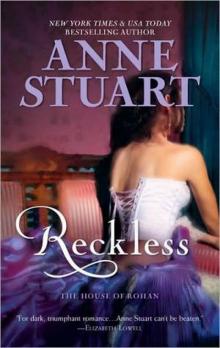 Reckless
Reckless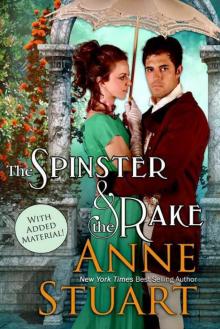 The Spinster and the Rake
The Spinster and the Rake Winter's Edge
Winter's Edge At the Edge of the Sun
At the Edge of the Sun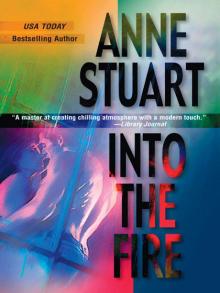 Into the Fire
Into the Fire Night of the Phantom
Night of the Phantom Ritual Sins
Ritual Sins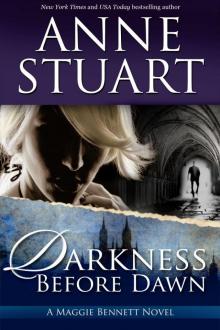 Darkness Before the Dawn
Darkness Before the Dawn Against the Wind
Against the Wind Ruthless
Ruthless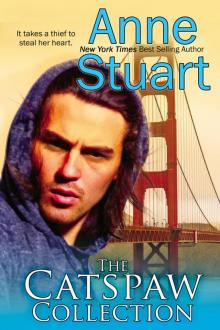 The Catspaw Collection
The Catspaw Collection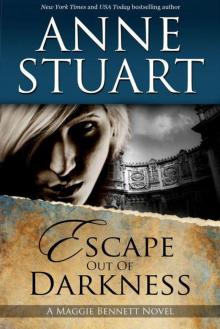 Escape Out of Darkness
Escape Out of Darkness The Widow
The Widow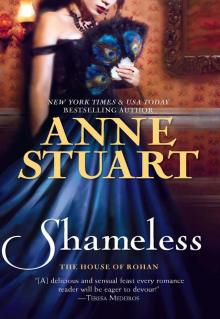 Shameless
Shameless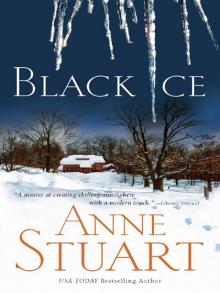 Black Ice
Black Ice Breathless
Breathless Shadows at Sunset
Shadows at Sunset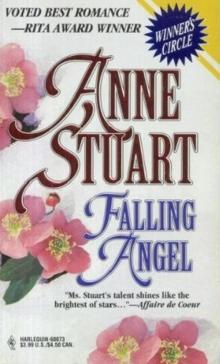 Falling Angel
Falling Angel Housebound
Housebound Cold as Ice
Cold as Ice The Wicked House of Rohan
The Wicked House of Rohan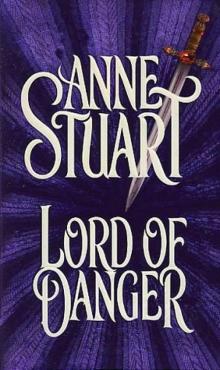 Lord of Danger
Lord of Danger The High Sheriff of Huntingdon
The High Sheriff of Huntingdon Wildfire
Wildfire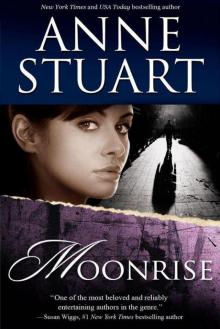 Moonrise
Moonrise The Demon Count's Daughter
The Demon Count's Daughter Date With a Devil
Date With a Devil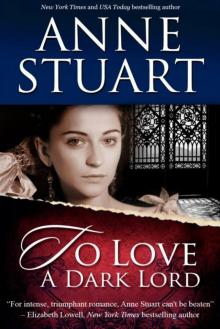 To Love a Dark Lord
To Love a Dark Lord Driven by Fire
Driven by Fire Special Gifts
Special Gifts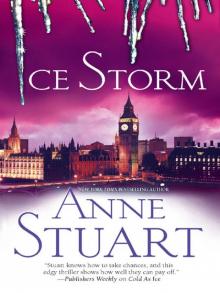 Ice Storm
Ice Storm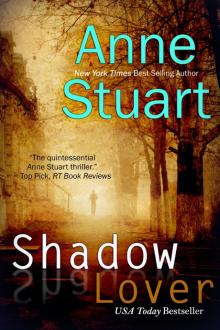 Shadow Lover
Shadow Lover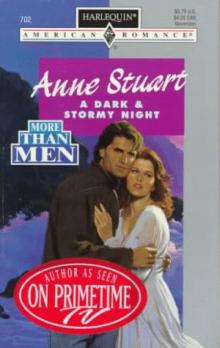 A Dark & Stormy Night
A Dark & Stormy Night Now You See Him...
Now You See Him...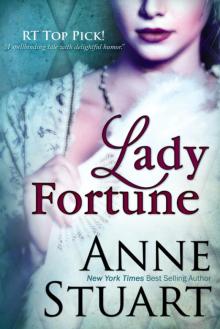 Lady Fortune
Lady Fortune Glass Houses
Glass Houses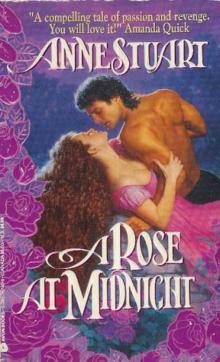 A Rose at Midnight
A Rose at Midnight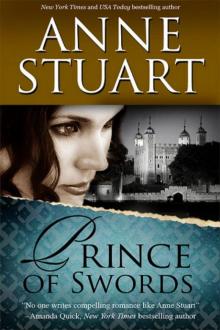 Prince of Swords
Prince of Swords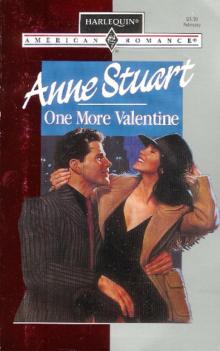 One More Valentine
One More Valentine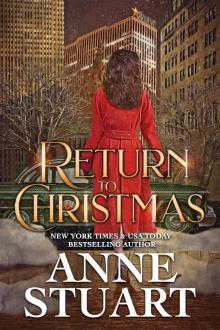 Return to Christmas
Return to Christmas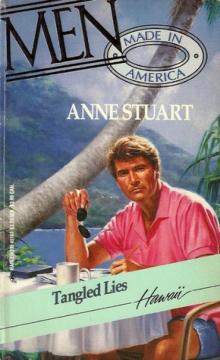 Tangled Lies
Tangled Lies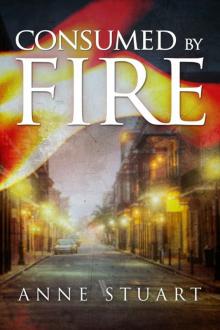 Consumed by Fire
Consumed by Fire The Fall of Maggie Brown
The Fall of Maggie Brown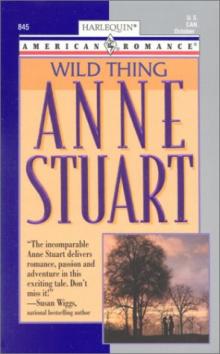 Wild Thing
Wild Thing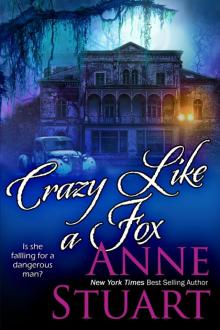 Crazy Like a Fox
Crazy Like a Fox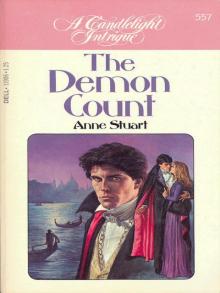 The Demon Count
The Demon Count Prince of Magic
Prince of Magic Wildfire (The Fire Series Book 3)
Wildfire (The Fire Series Book 3)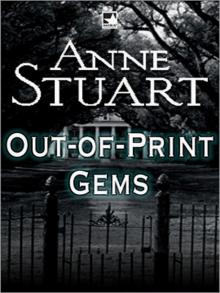 Anne Stuart's Out-of-Print Gems
Anne Stuart's Out-of-Print Gems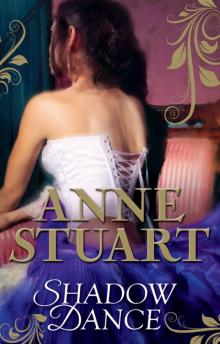 Shadow Dance
Shadow Dance Under an Enchantment: A Novella
Under an Enchantment: A Novella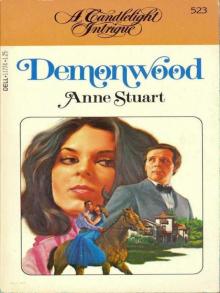 Demonwood
Demonwood Blue Sage (Anne Stuart's Greatest Hits Book 3)
Blue Sage (Anne Stuart's Greatest Hits Book 3)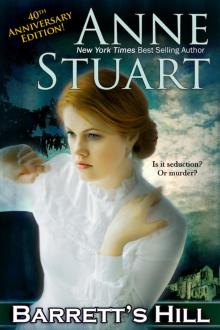 Barrett's Hill
Barrett's Hill Angel's Wings (Anne Stuart's Bad Boys Book 5)
Angel's Wings (Anne Stuart's Bad Boys Book 5)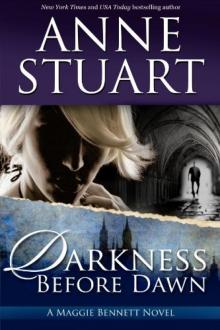 Darkness Before Dawn
Darkness Before Dawn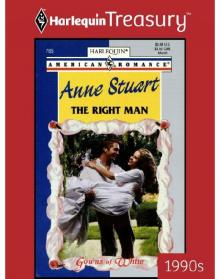 The Right Man
The Right Man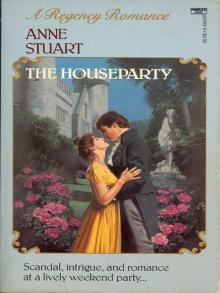 The Houseparty
The Houseparty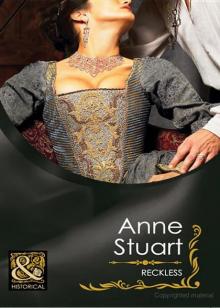 Reckless_Mills & Boon Historical
Reckless_Mills & Boon Historical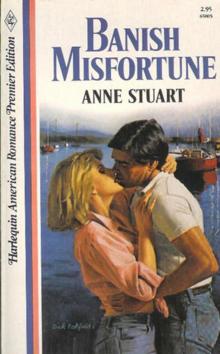 Banish Misfortune
Banish Misfortune Angel's Wings
Angel's Wings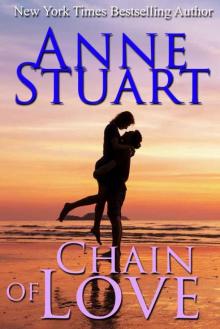 Chain of Love
Chain of Love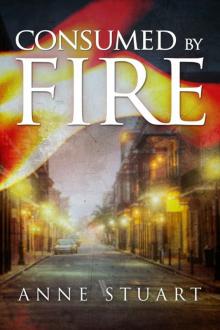 Consumed by Fire (The Fire Series)
Consumed by Fire (The Fire Series)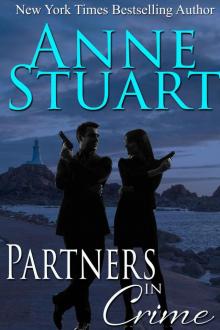 Partners in Crime (Anne Stuart's Bad Boys Book 4)
Partners in Crime (Anne Stuart's Bad Boys Book 4)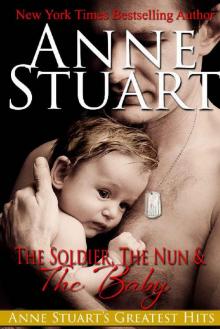 The Soldier, The Nun and The Baby (Anne Stuart's Greatest Hits Book 2)
The Soldier, The Nun and The Baby (Anne Stuart's Greatest Hits Book 2)